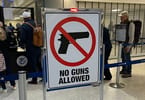Worldwide differences in definitions and guidelines of quarantine and self-isolation are creating confusion and difficulty for travelers.
Na ọbịbịa nke Covid-19 pandemic, terms such as ‘quarantine’ and ‘self-isolation’ have become much more commonplace now. Indeed, with COVID-19 restrictions in place in almost every country or territory in the world, international and even some domestic travel at this stage involves some form of quarantine or isolation. But what exactly do these terms mean? Some governments have used these terms interchangeably, which complicates matters, but essentially quarantine or isolation are likely to mean one of two situations. Here is a brief guide to the two variants that travelers may encounter and some examples of countries which implement each.
Quarantine/Government quarantine: Mandatory isolation for high-risk groups such as travelers, people with COVID-19 or those who came in direct contact with them, to limit the spread of the virus and prevent it from being transmitted further into the local community. Quarantine is usually done at government-approved facilities such as hotels, hostels and/or hospitals under close supervision, usually for a period of two weeks. While many countries initially absorbed the costs of quarantine, travelers are increasingly required to pay at least a portion of the costs. Depending on the country, international non-resident travelers may be required to pay the full cost of government quarantine.
Examples of countries that have implemented mandatory government approved quarantine are:
- Malaysia: Travelers eligible to enter Malaysia will be required to self-quarantine for 14 days. Travelers will be required to download the MySejahtera application and issued a wristband for identification and monitoring by authorities.
- India: Indian nationals and residents returning from abroad are required to quarantine for seven days at a government-designated facility, followed by seven days of home isolation. Travelers will be required to install the Aarogya Setu application.
- New Zealand: New Zealand nationals and residents returning from abroad are required to quarantine for 14 days upon arrival at government designated hotels.
- China: All travelers arriving from abroad are required to quarantine for 14 days upon arrival at a government approved facility or hotel
Self-isolation/Self-quarantine: Also called self-quarantine or home quarantine, it is a less restrictive form of isolation where the individual is allowed to self-isolate or quarantine at home or their accommodation for a specific period. The monitoring and enforcement of this period varies between governments, and some are stricter than others. It is important to note that this form of quarantine may be harder for authorities to monitor as the onus is on the individual to ensure guidelines are adhered to. In addition, self-isolation/self-quarantine can either be mandatory or recommended, depending on the respective authorities as well as the individual case of each traveler. The period of self-isolation can also differ, some governments only require individuals to self-isolate until they test negative for COVID-19, while others require travelers to isolate for a full 14-day period.
Countries that have implemented mandatory self-isolation include:
- Canada: All travelers entering Canada, excluding essential workers, must self-isolate for 14 days. Similar quarantine measures have been imposed by provincial governments.
- Greece: Travelers may be subject to COVID-19 testing, depending on the QR code generated from their Passenger Locator Form. Upon being tested, travelers must self-isolate at a hotel or residence until they receive their results. Those tested positive are required to undergo mandatory 14-day quarantine at a designated hotel.
- Germany: Travelers arriving from designated high-risk areas must undergo a 14-day home quarantine.
- United Kingdom: Most arrivals to the UK must self-isolate for 14 days, excluding travelers from select countries and territories exempt from quarantine. Travelers unable to guarantee a place of quarantine will be quarantined in a government-run facility or may be refused entry to the UK.
This information was correct at 19 July 2020.
#mmegharị njem
IHE Ị GA-Ewepụ na edemede a:
- Also called self-quarantine or home quarantine, it is a less restrictive form of isolation where the individual is allowed to self-isolate or quarantine at home or their accommodation for a specific period.
- It is important to note that this form of quarantine may be harder for authorities to monitor as the onus is on the individual to ensure guidelines are adhered to.
- Indeed, with COVID-19 restrictions in place in almost every country or territory in the world, international and even some domestic travel at this stage involves some form of quarantine or isolation.























